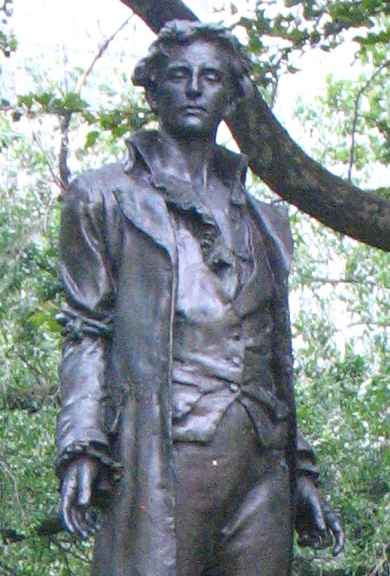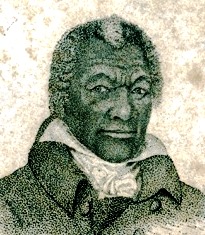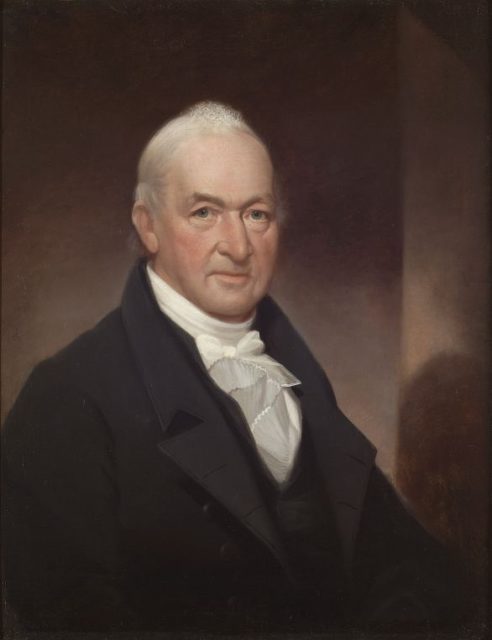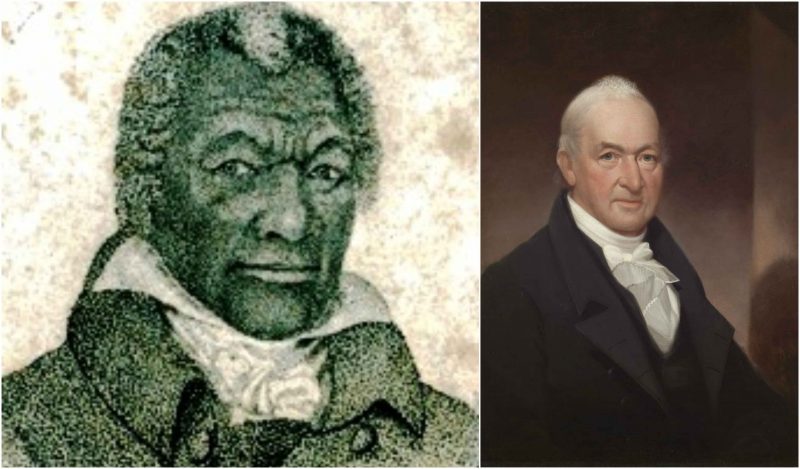To turn the tide of events in the favor of the revolutionaries the fledgling Continental Army deployed all kind of methods to help beat the British. Most famous and tactically sophisticated operation conducted by the revolutionaries was the creation of a disciplined and effective network of agents and spies, in order to gain an upper hand over the oppressors. Despite the grim consequences of the capture, a number of patriots offered their services to carry out the espionage by cutting through the enemy lines and gathering the much-needed intelligence for the revolutionaries. Following is the list of five of the most legendary secret agents who contributed a great deal to the War of Independence.
Nathan Hale

Perhaps not the most successful of the spies, Yale graduated 21 years old true patriot Nathan Yale made his name in the history for his love and dedication to his homeland. After serving a short time in Continental reconnaissance unit, Hale offered his services when General George Washington’s forces got trapped on Manhattan Island in the fall of 1776. Posing as a teacher, Hale was transported to the small town of Huntington occupied by the British loyalists and troops. Due to his lack of recon skills, Hale soon raised some eyebrows with his excessive questioning and odd appearances. It did not take long for British to realize the oddity, and Hale was captured after a loyalist posed as a fellow spy tried to chat with Hale, he blew his cover and was captured and was later sent for execution. His final statement is perhaps the moment that brought him the place in the pages of history when he famously uttered ‘I only regret that I have but only one life to give for my country’.
Lewis Costigin
Perhaps the most bizarre spy story of all time, Lieutenant Lewis Costigin served the cause of American Revolution in the way that no spy ever managed to do for any country. Costigin’s journey started when George Washington sent him to New Brunswick in New Jersey to gather information. After the battle of Trenton Washington was unable to gather enough information about the British movement and supplies in the region. Costigin met an early disaster when he was promptly spotted and arrested, but since he was wearing the full colonial uniform he was spared the execution which was the fate of spies. Costigin was rather kept as a prisoner of war and was not particularly harmed by the British. After being transported to New York City, British set Costigin free in the town on a parole on the condition that he would not take arms against the British. Soon after British troops got used to seeing Costigan roaming around town in colonial dress and did not perceive him as a threat, he got to work on his spying mission. Now Costigan could easily gather information after having access to almost all parts of the city. Washington kept receiving vital pieces of information about British movement and plans from the New York City gathered by Costigan who used the name ‘Z’ for his operation.
James Armistead

Serving as a double agent, James Armistead a black slave decided to join the revolution after his master granted him the permission to serve the country. Being a black slave and an intelligent actor, Marquis de Lafayette quickly spotted him and chose him to serve as a secret agent during the Yorktown campaign. Armistead worked tirelessly providing critical Intel from behind the enemy lines, and was soon promoted to the status of a full-blown espionage officer when he infiltrated Charles Cornwallis’s camp, by presenting himself as a runaway slave loyal to the Union Jack. His acting was so convicting that Cornwallis quickly enlisted him as a British spy to bring information from the revolutionary’s ranks, which he did, only the information was mostly fraudulent and served against the British interests. He, of course, continued passing on critical intelligence to Lafayette including the British amassing of forces in Yorktown. James Armistead was sadly sent back to slavery after the war, despite his critical role in the War and did not receive his release papers until 1787, after Lafayette wrote to the Virginia authorities on his behalf. James later changed his name from James Armistead to James Armistead Lafayette as a gratitude for his former commander and a dear friend.
Enoch Crosby
Crosby was such a brilliant spy that all through his time working as a double agent for the colonials, he was accused by his own parents of treason against his nation. This was partly due to the nature of his operations that took a strange shape from the day he decided to join the colonial cause. When Crosby made up his mind to join the revolutionaries and started marching towards their camps he met a few British sympathizers who mistook him as one of their own. When Crosby eventually met the colonial leader John Jay he explained the peculiar situation, who then did not waste a single second to seize the opportunity and recruited him as country’s first ever counterintelligence operative. Crosby was assigned a very special task and the very nature of his duties meant that there were only a few people in colonial camp that actually knew his true identity. His operations mode was to first get arrested by the colonials along with some loyalist’s militiamen, only to be later released by the colonials. Crosby would then run back to loyalists telling a heroic tale of escape from the rebels. Many such operations to and fro meant a number of successes for the revolutionaries while the British sympathizers were left perplexed by the whole situation of not knowing the whole story.
Benjamin Tallmadge – the mastermind of Culver Ring

Despite being an active soldier fighting in the famous battles of White Plains and Germantown, Tallmadge earned the title of Continental Dragon. He later masterminded the formation of a sophisticated spy system dubbed the ‘Culper Ring’ upon the permission of George Washington, which proved to be the most effective Intelligence gathering espionage cabal during the American Revolution. Tallmadge deployed a number of spy techniques and intelligence gathering tools to help spies keep a smooth flow of information right under the enemy nose. Courtesy Tallmadge brilliance the Culper Ring caused a significant nuisance for the British for over five years and that without losing even a single officer to the British.
